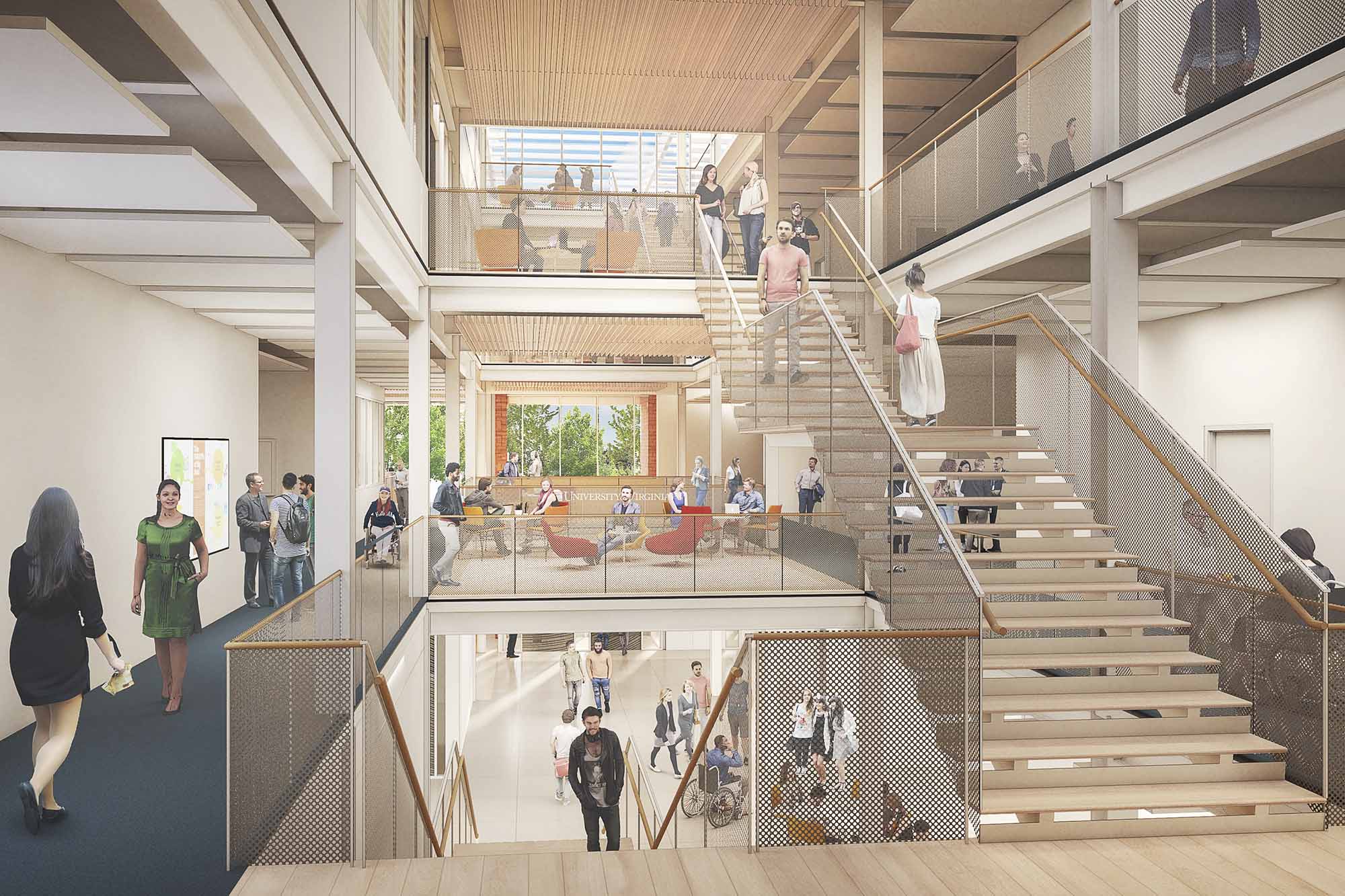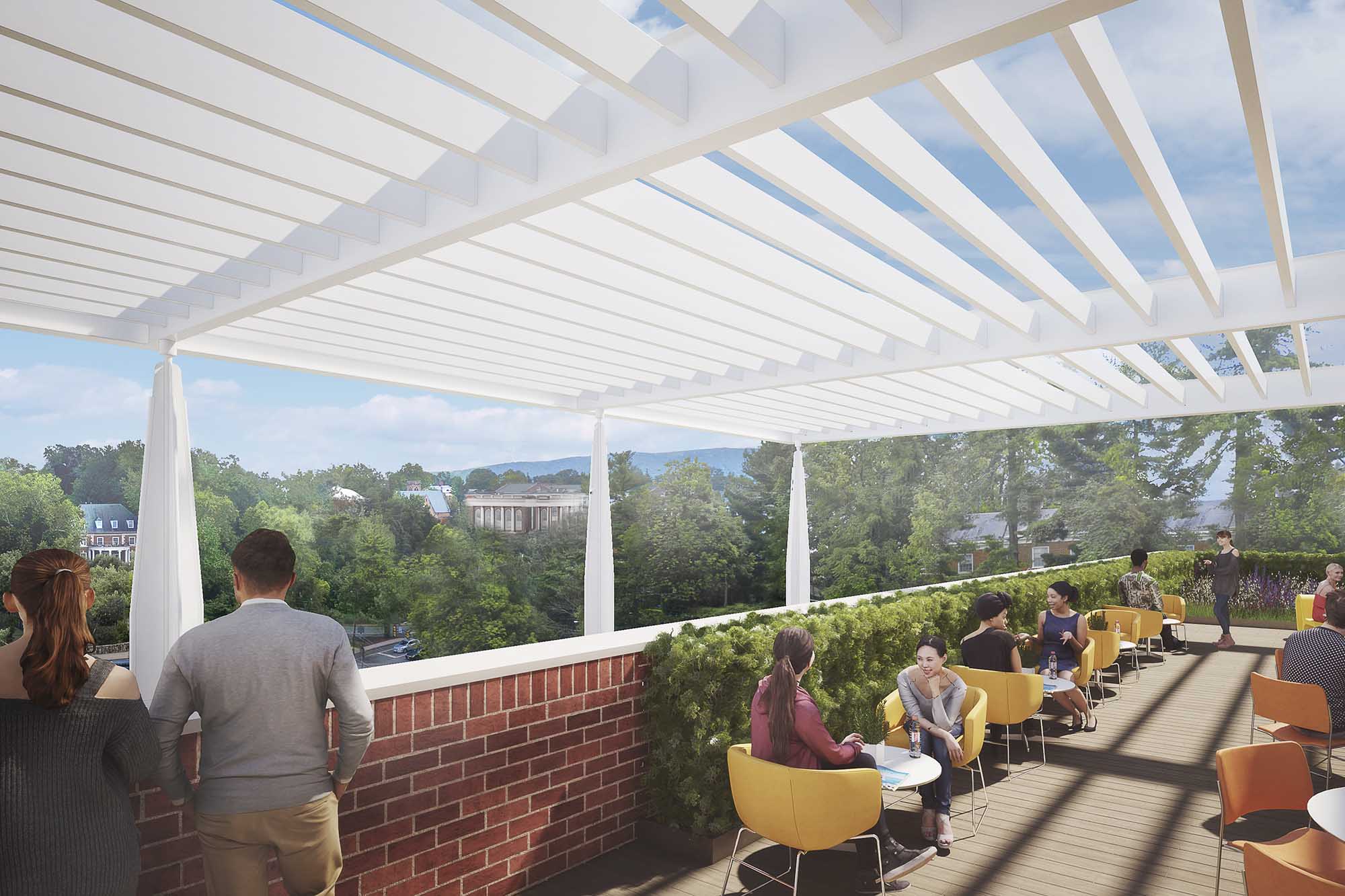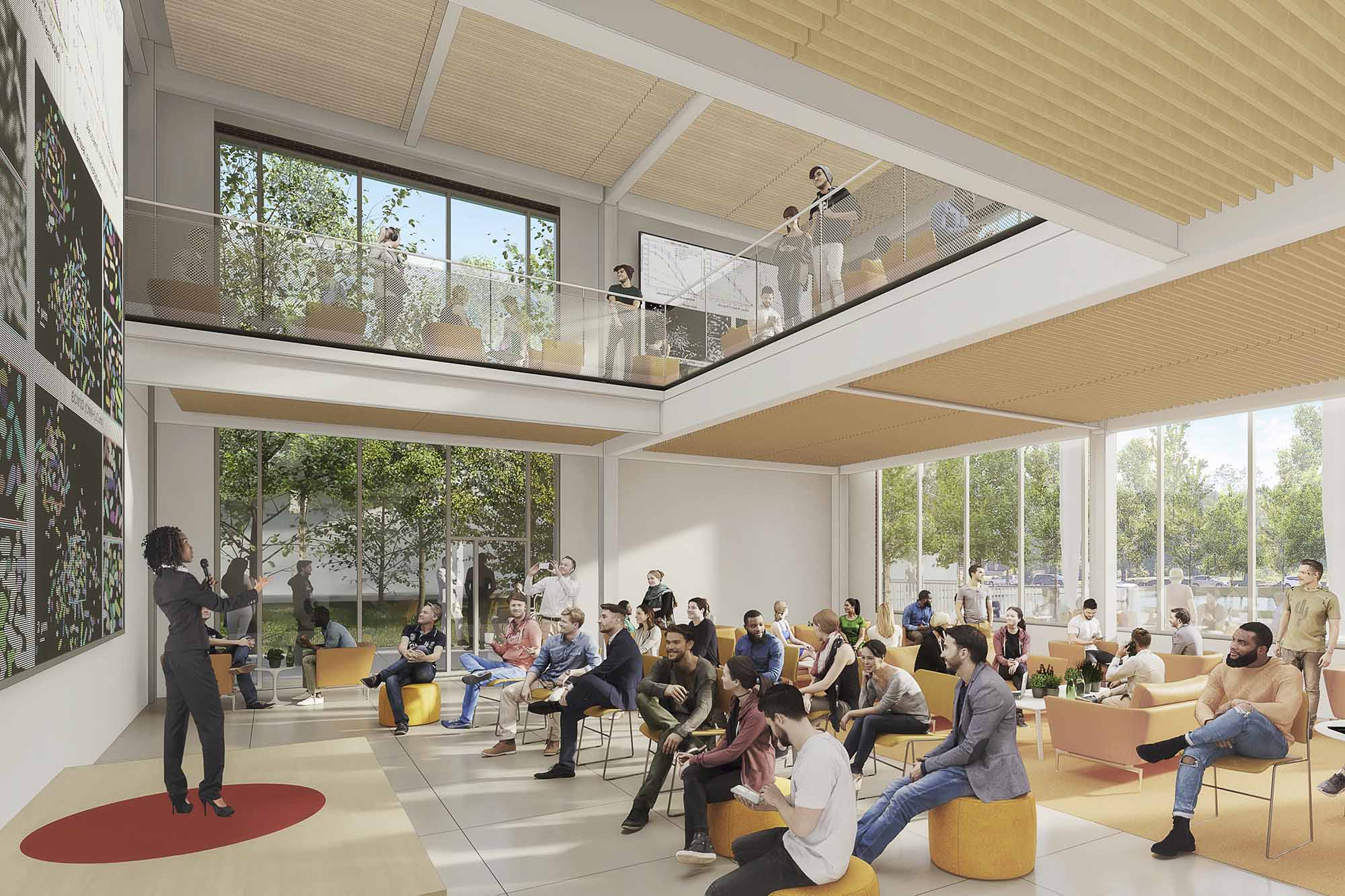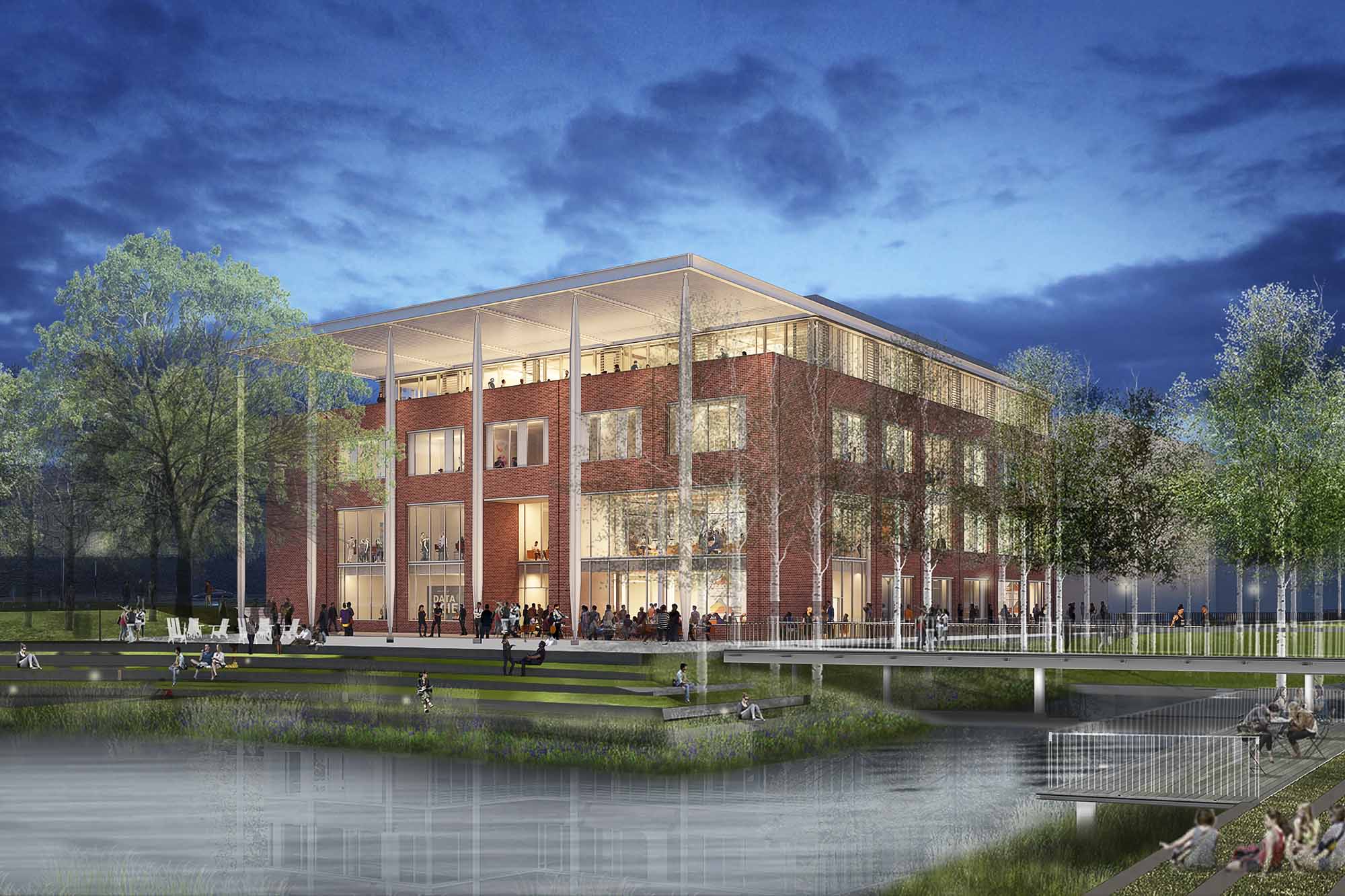The Board of Visitors Buildings and Grounds Committee on Friday approved the schematic design of the proposed home of the School of Data Science in the Emmet-Ivy Corridor.
The School of Data Science building is scheduled to be the first academic building constructed on the 14.5-acre Emmet-Ivy parcel. As designed, the building will face Emmet Street, with an amphitheater and a retention pond between the building façade and the street.
The four-story, 61,000 square-foot facility will include four “adaptive classrooms” with technology to enhance the learning process, and faculty offices, as well as meeting and research areas that will support the School of Data Science.

The open central staircase through the building will encourage chance meetings between students, faculty and staff. (Photo courtesy of Hopkins Architects)
The Buildings and Grounds Committee reviewed preliminary designs in September, made suggestions and the revised plans were presented Friday by Architect for the University Alice Raucher.
The revised plans call for a simpler building footprint than originally proposed, with a double-height interior space to host lectures and other events, as well as a glass façade.
“The space really allows the life and the activity of the School of Data Science to be on full display from the exterior, which is one of our guiding principles for the design,” Raucher told the committee. “The central stair through the building encourages chance meetings between students, faculty and staff. The skylights allow natural light into all the surrounding work stations.”

In keeping with the University’s 2030 sustainability goals, a green roof is planned for the fourth floor to mitigate the heat gain from a south-facing roof, and private offices will have windows that open to increase natural ventilation.
The building will connect with Central Grounds structures in its materials and coloring, as well as in its views.
“There is a continuous terrace at the fourth floor along the face of the east façade, which will provide great views overlooking the pond as well as fantastic views back to the Rotunda and the new Alderman Library addition,” Raucher said.

The view from the fourth-floor terrace will connect the School of Data Science building to Central Grounds. (Photo courtesy of Hopkins Architects)
Raucher showed the committee perspectives of the proposed building from the planned hotel conference center on the parcel and the from the intersection of Emmet Street and IvyRoad.
“We hope the transparency and the activity of this hub and its prominent location will make this a beacon for the district,” she said.
Raucher praised the work of the design team, which included Hopkins Architects and VMDO Architects, collaborating with the Office of the Architect for the University, the School of Data Science, the Office of the Provost and Facilities Management.
Data science is an interdisciplinary field that uses scientific methods, processes, algorithms and systems to extract knowledge and insights from data. The amount of data in the world is more than doubling every two years, and data scientists analyze and interpret data to help make informed decisions.

The proposed double-height interior space will be used for lectures and other events. (Photo courtesy of Hopkins Architects)
Data science is at the intersection of computer science, statistics, mathematics, information science and specialized fields of knowledge or study, such as medicine, politics and music. Conducting data science transcends traditional disciplinary boundaries to discover new insights, often by combining disparate data sets that would not likely be brought together otherwise.
The School of Data Science, the University’s 12th school, was approved by the board in 2019 and made possible a $120 million gift from the Quantitative Foundation, based in Charlottesville and led by Jaffray Woodriff and his wife, Merrill Woodriff, both UVA graduates. Jaffray Woodriff, a 1991 graduate of the McIntire School of Commerce, is trustee of the foundation. Merrill Woodriff, who completed a bachelor’s degree from the College of Arts & Sciences and a master’s degree from the School of Education and Human Development in 1998, is a foundation director. Jaffray Woodriff is also co-founder and CEO of Quantitative Investment Management, a private investment firm based in Charlottesville.
The foundation’s gift will support faculty and administration for the school as well as doctoral and post-doctoral fellowships, with matching funds from UVA’s Bicentennial Professors Fund and Bicentennial Scholars Fund. The gift will also support an endowed fund for visiting scholars from other schools and academic units. Additional financial support will come from University funds, philanthropy and faculty research grants.
Media Contact
Article Information
December 14, 2020
/content/buildings-grounds-committee-oks-data-science-building-design

